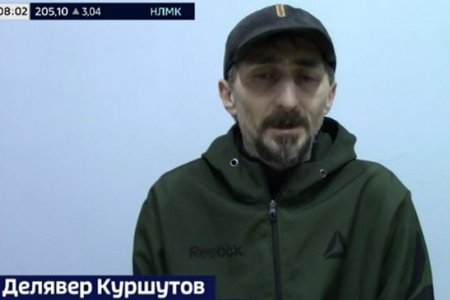
The United Kingdom has imposed sanctions on Russian defence ministry troops and research centres directly implicated in Russia’s widespread use of the toxic choking agent chloropicrin and other chemical weapons in its war against Ukraine. Kyiv has provided documented evidence of Russia’s widespread use of such prohibited chemical weapons, as well as of riot control agents, the use of which is prohibited in warfare, and has called on the international community to speak out against Russia’s election to the Executive Council of the Organization for the Prevention of Chemical Weapons [OPCW] for 2025-2027.
It defies belief that Russia’s election could even be considered, and not only because of its violations of the Chemical Weapons Convention in Ukraine. In March 2018, Russian GRU officers tried to assassinate Sergei Skripal in the centre of Salisbury with the use of the Novichok nerve agent. The UK government press release makes it clear that “agents of Putin’s mafia state” carried out this attack, which killed a British woman. Such state agents, it should be remembered, also carried radioactive polonium by plane to the UK in 2006, staying in a central London hotel and using the polonium to assassinate former FSB agent and Kremlin critic, Aexander Litvinenko. A UK public commission concluded that Russian leader Vladimir Putin had probably approved the killing, with the European Court of Human Rights also finding that the Russian state was responsible.
In announcing the sanctions on 8 October 2024, the UK pointed out that “Russian forces have openly admitted to using hazardous chemical weapons on the battlefield, with widespread use of riot control agents and multiple reports of the use of the toxic choking agent chloropicrin – first deployed on the battlefields of WW1.” The sanctions target Russia’s Radiological Chemical and Biological Defence troops, and their commander Lt Gen Igor Kirillov, as well as two scientific centres (the 27th and 33rd).
The sanctions are, of course, welcome, as is the UK’s announcement that it has provided Ukraine with vital equipment and training to protect its people against chemical weapons. Such sanctions alone, however, will not ensure that Russia answers for such crimes, especially if it stands a chance of becoming a member of the OPCW executive council after the present term ends on 11 May 2025.
In May 2024, the United States also announced that it had imposed new sanctions in punishment for Russia’s repeated use of the choking agent chloropicrin and riot control agents in its full-scale war against Ukraine.
OPCW reported in September that it had, from 2-3 July, conducted a first technical assistance visit over the reports of such use of chemical weapons. Although the report mentioned allegations about such use from both Ukraine and Russia, there is nothing to suggest that Russia has ever provided any evidence.
The visit, on the other, had been requested by Ukraine which had signed an ad hoc privileges and immunities agreement with OPCW on 24 May. This, among other things, resulted in the provision by OPCW experts of seventy devices for detecting gas and vapour threats, with training on how to use these. The Arms Control Today report noted that Kyiv had provided evidence for its allegations about Russia’s use of chemical weapons at the OPCW Executive Council meeting from 9-12 July. “The documentation offered, including evidence prepared by the Ukrainian armed forces commander, contained photos and detailed analysis of the types of munitions found on the battlefield, alleging that “most of the munitions (82 percent) used were hand gas grenades of the K-51 and RG-VO types…which are riot control agents and are prohibited for use as means of warfare” under the Chemical Weapons Convention (CWC).
On 11 October, Ukraine’s Representative to 0PCW, Oleksandr Karasevych addressed the 107th session of the OPCW Executive Committee, stressing that Russia was regularly using such weapons on the entire frontline.
The September report noted that at least one state party to the Chemical Weapons Convention must make “a specific substantiated request” for OPCW to formally begin OPCW activities linked to the use of chemical weapons. Whether such formal activities have been triggered may be unclear, however two state-parties have now concluded that the evidence is sufficiently damning to warrant the imposition of sanctions against those implicated. Nicole Shampaine, US Ambassador to OPCW, told Arms Control Today that at the next Convention on Chemical Weapons conference of state parties in the Hague from 25-29 November 2024, the USA “will join many other countries in ensuring this issue is at the top of the agenda at the OPCW in order to hold Russia accountable for its actions.”
It was the large-scale use of chemical weapons in World War I and the devastating effect it had on the men who survived that resulted in the absolute prohibition of such gas chemical warfare in the Geneva Protocol of 1925. The Chemical Weapons Convention, which Russia ratified in 1997, could not be more unequivocal in prohibiting the use, development, production, retention, etc. of chemical weapons, and in prohibiting the use of riot control agents as a method of warfare.



